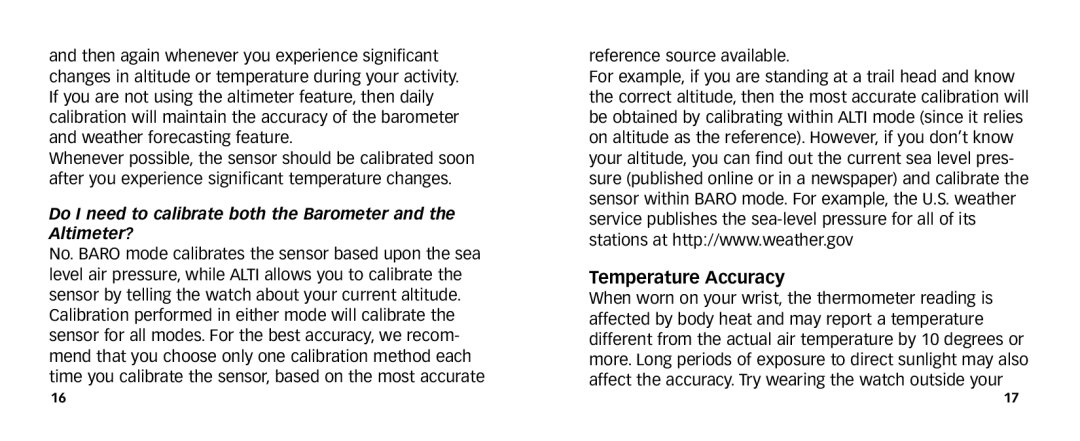and then again whenever you experience significant changes in altitude or temperature during your activity. If you are not using the altimeter feature, then daily calibration will maintain the accuracy of the barometer and weather forecasting feature.
Whenever possible, the sensor should be calibrated soon after you experience significant temperature changes.
Do I need to calibrate both the Barometer and the Altimeter?
No. BARO mode calibrates the sensor based upon the sea level air pressure, while ALTI allows you to calibrate the sensor by telling the watch about your current altitude. Calibration performed in either mode will calibrate the sensor for all modes. For the best accuracy, we recom- mend that you choose only one calibration method each time you calibrate the sensor, based on the most accurate
reference source available.
For example, if you are standing at a trail head and know the correct altitude, then the most accurate calibration will be obtained by calibrating within ALTI mode (since it relies on altitude as the reference). However, if you don’t know your altitude, you can find out the current sea level pres- sure (published online or in a newspaper) and calibrate the sensor within BARO mode. For example, the U.S. weather service publishes the
Temperature Accuracy
When worn on your wrist, the thermometer reading is affected by body heat and may report a temperature different from the actual air temperature by 10 degrees or more. Long periods of exposure to direct sunlight may also affect the accuracy. Try wearing the watch outside your
16 | 17 |
